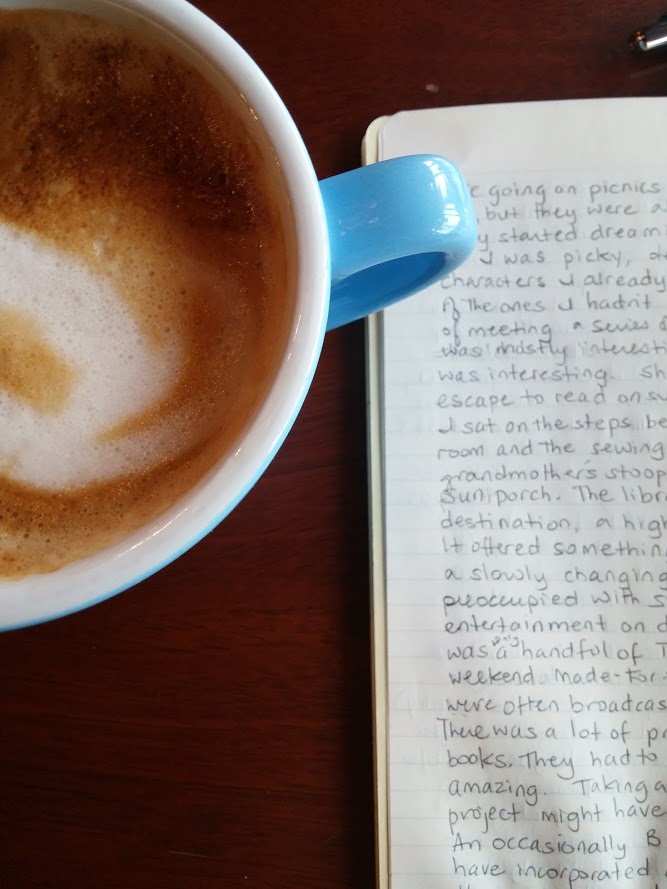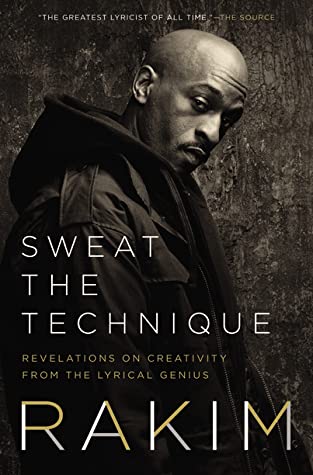The artist behind what MTV called “the greatest hip-hop album of all time” (1987’s Paid in Full, recorded with Eric B.), Rakim, traces his inspiration to pre-birth. “My mother heard—and, by extension, I believe I heard—the words of Dr. King while I was still in the womb, and that sparked a connection to the man that resonates with me still.”
When he was a boy, Rakim witnessed DJs taking “disco, soul, and funk records—anything that was high-energy and powerful and danceable—and isolating the breakdown” (which is “the part where it’s just rhythm, percussion, and drumming that makes people want to dance with some force”). And he wrote his first rhyme when he was seven years old—about Mickey Mouse!
After he recognized his talent for rapping and his passion for hip-hop, he began to focus on improving his craft. In “Purpose”, he writes: “Three keys guided me: originality; the vibrations in the music; and the challenge to always be better than myself.”
Of course, some of his commentary is immediately applicable for musicians: “Music is vibration, and when it hits a certain spot, it boosts your energy. And it gives you a photo-flash memory of that moment.”
But creatives of all sorts can embrace this kind of observation: “You’re competing with the last thing you did. That’s one way of sticking to your guns and letting who you are speak through your work.”
And, like Questlove, he does not limit his sources of inspiration:
“Inspiration is everywhere, and to gain the knowledge required to become your best self and create your best work, seek inspiration not only in the obvious but across all spectrums of culture. In the effort to expand my thinking, elevate my creativity, and always outdo myself, I observe and record, and I learn from teachers, from books, from art, from science, from spirituality, from strangers on the street, and, many times most of all, from my closest family.”
After “Purpose” and “Inspiration”, the other three segments of the book discuss Spirituality, Consciousness, and Energy. For Rakim, his “…spiritual beliefs, the scientific and mathematical concepts” studied and “ideas and philosophical questions” both inspired and shaped his journey. He recommends artists embrace conscious energy: “Performance days are an important part of being a hip-hop artist. Their value to the art shouldn’t be diminished.”
For musicians, performance is paramount in importance, but other writers can consider this advice when it comes to readings and interviews, social media engagement and video presentations. Certainly musicians and spoken word artists will find particular encouragement here. For instance, the five detailed explorations of Rakim’s creative process, breaking down his work on “How to Emcee”, “Mahogany”, “The Mystery”, “Musical Massacre”, and “Casualties of War”.
Broader discussions of creativity, however, have clear applicability to artists of all sorts:
“You want to reach that point of creativity where it’s just flowing. No distractions, with the room comfortable like you want it. You’re trying to get to that place where everything is ten times more exaggerated. You want to get to that level where you’re at your highest point for expressing your art. Tap into it.”
Good stuff for writers.
Rakim with Bakari Kitwana. Sweat the Technique: Revelations on Creativity from the Lyrical Genius. NY: HarperCollins, 2019.

